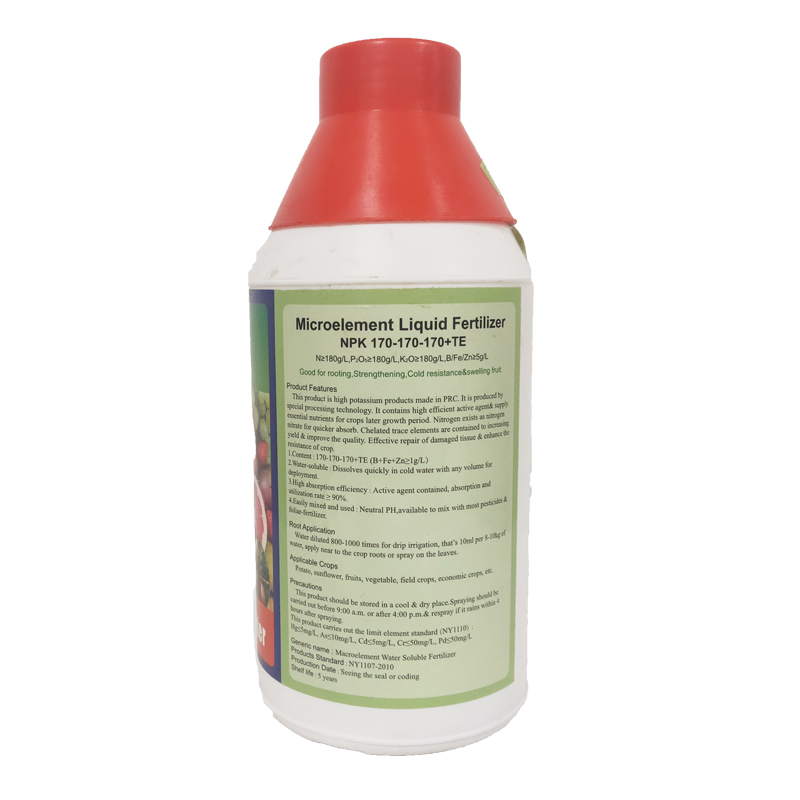
Nov . 11, 2024 20:32 Back to list
best natural organic fertilizer for plants
The Best Natural Organic Fertilizers for Plants
When it comes to nurturing your garden, choosing the right fertilizer can make all the difference in promoting healthy growth and vibrant blooms. Organic fertilizers, derived from natural sources, are increasingly popular among gardeners due to their environmental benefits and ability to improve soil quality over time. In this article, we'll explore some of the best natural organic fertilizers for plants, their benefits, and how to effectively use them.
1. Compost
Compost is often considered the gold standard of organic fertilizers. It consists of decomposed organic matter, including kitchen scraps, yard waste, and other biodegradable materials. Compost enriches the soil with essential nutrients, improves soil structure, and enhances its moisture-retaining capacity. To use compost, simply incorporate it into your garden beds or use it as a top dressing around your plants. Regular application encourages beneficial microbial activity and offers a steady supply of nutrients as it continues to break down.
2. Manure
Animal manure, especially from herbivores like cows, horses, and chickens, is a potent organic fertilizer. It is rich in nitrogen, phosphorus, and potassium—key nutrients needed for plant growth. However, fresh manure can be too strong for direct application due to its high ammonia content, which can burn plants. It's best to compost manure for several months before using it in your garden. This process not only reduces the risk of burning but also eliminates pathogens, making it safe for your plants.
3. Bone Meal
Bone meal is a slow-release organic fertilizer made from ground animal bones. It is an excellent source of phosphorus, which is critical for root development, flower, and fruit production. The slow-release nature of bone meal means it can provide plants with nutrients over an extended period. It is particularly beneficial for flowering plants and root vegetables. When applying bone meal, make sure to follow package instructions, as too much can lead to nutrient imbalances in the soil.
best natural organic fertilizer for plants

4. Fish Emulsion
Fish emulsion is a liquid fertilizer made from fish waste, and it is known for its high nitrogen content. It is an excellent choice for leafy greens and plants that require a nitrogen boost. Fish emulsion also contains trace minerals that contribute to overall plant health. To use fish emulsion, dilute it with water according to the instructions on the bottle and apply it every few weeks during the growing season.
5. Kelp Meal
Kelp meal is derived from seaweed and offers a complete range of micronutrients essential for plant health. It is particularly useful for improving soil structure and enhancing plant resilience to stress, such as drought or disease. Kelp meal also promotes root development and can be used as a top dressing or mixed into the soil before planting. This natural fertilizer is especially beneficial for vegetable gardens and flowering plants.
6. Worm Castings
Worm castings, or vermicompost, are the nutrient-rich byproducts of earthworms. They are packed with beneficial microorganisms, enzymes, and nutrients that promote healthy plant growth. Worm castings improve soil structure, water retention, and enhance nutrient availability. You can incorporate worm castings into your potting mix or top-dress your garden plants for an immediate nutrient boost.
Conclusion
Choosing the best natural organic fertilizer for your plants depends on the specific needs of your garden. Whether you opt for compost, manure, bone meal, fish emulsion, kelp meal, or worm castings, incorporating these organic options into your gardening routine will create a thriving, healthy environment for your plants. Not only do these fertilizers enrich the soil, but they also contribute to a sustainable gardening practice that protects our planet for future generations. Happy gardening!
-
10-10-10 Organic Fertilizer - Balanced NPK Formula
NewsAug.02,2025
-
Premium Organic Manure Compost for Eco Gardens
NewsAug.01,2025
-
Organic 10-10-10 Fertilizer | Balanced Plant Nutrients
NewsJul.31,2025
-
Premium Amino Acid Fertilizer | Rapid Plant Growth Booster
NewsJul.31,2025
-
10 10 10 Fertilizer Organic—Balanced NPK for All Plants
NewsJul.30,2025
-
Premium 10 10 10 Fertilizer Organic for Balanced Plant Growth
NewsJul.29,2025
